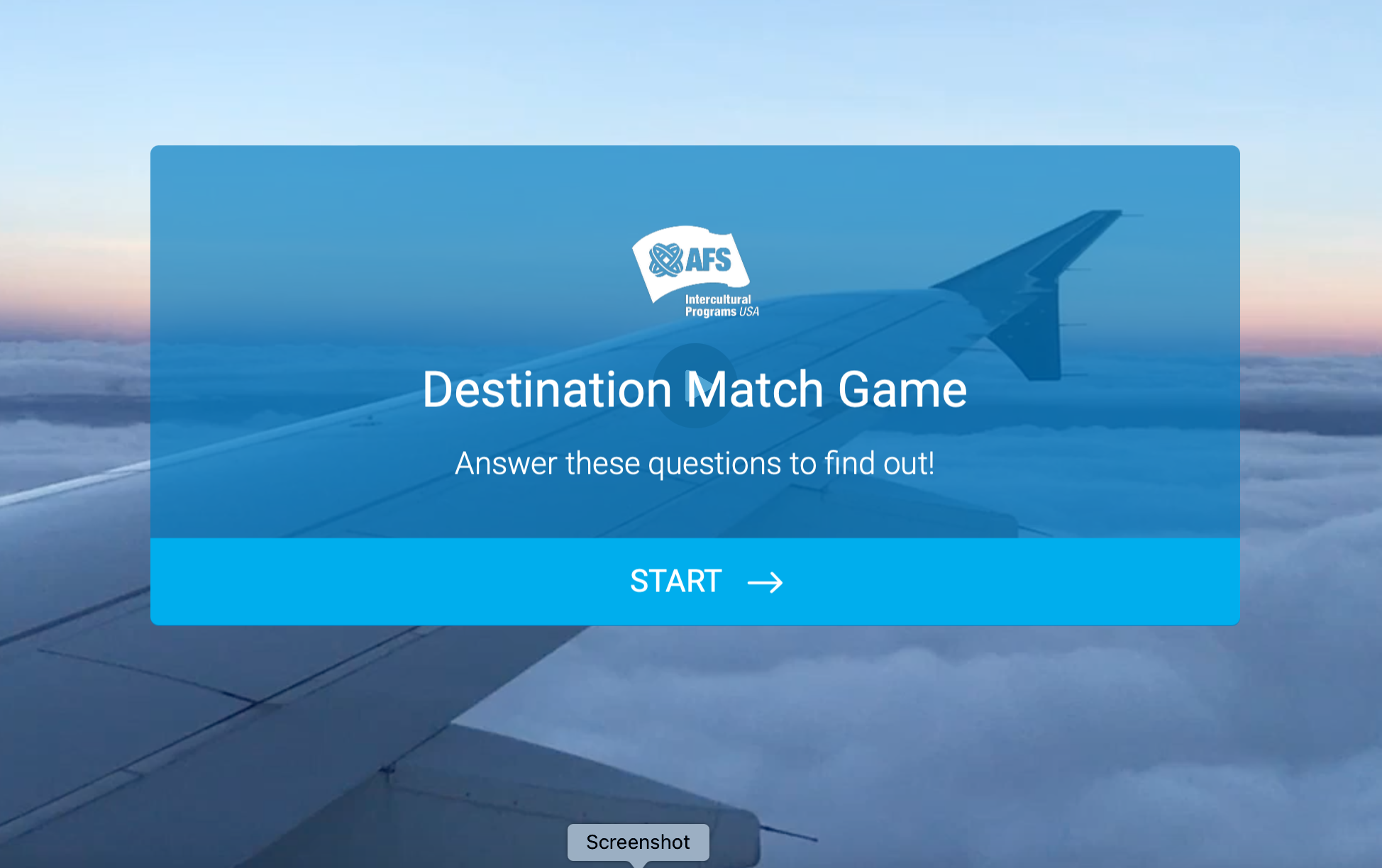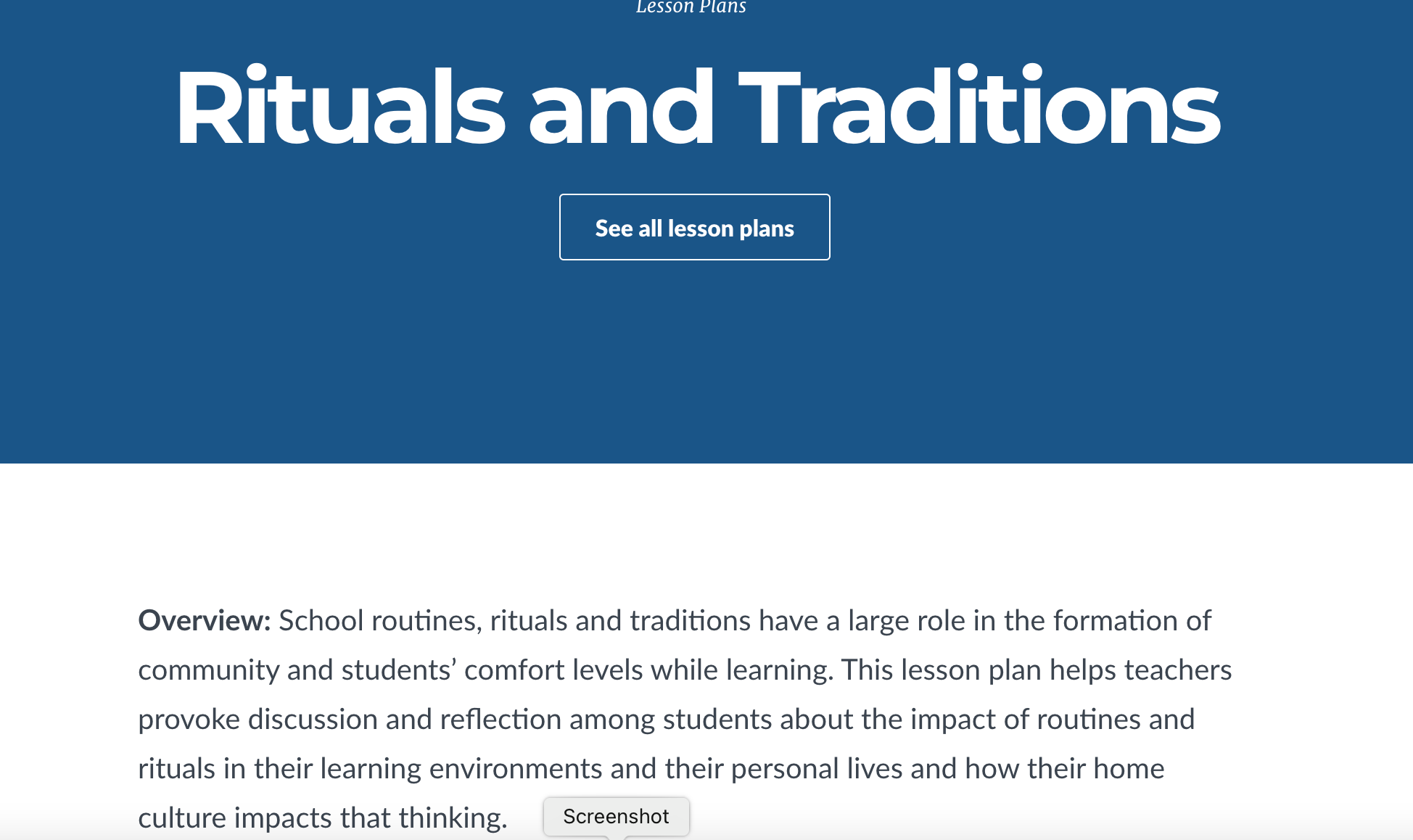AFS-USA has existed for over 70 years with the mission of bringing the world to classroom students and bringing students out into the world. AFS- USA promotes global citizenship and global awareness to high school and university-aged students by supporting study abroad and/or hosting experiences for individuals across 40+ countries. Check out their home page here- https://www.afsusa.org/.
-Grades: 9-16.
-AFS-USA’s Intention: Immersive intercultural experiences to make the world a better place.
-AFS-USA’s Offerings: Study abroad programs, hosting foreign students to study abroad in the USA, classroom activities, and virtual programs.
As the world expands and technology increases, the benefits of global awareness and intercultural experiences become more important than ever before. As a future social studies and history teacher, I have a responsibility and personal mission to create opportunities in my classroom for my students to create their global identities. Exposing students to AFS-USA will have a more lasting impact on their minds than relying on textbooks and lectures- and that is what AFS-USA is all about. AFS-USA focuses on immersion and giving students raw experiences with the world around them that differs from their own. Global citizenship takes thoughtful, creative, and real-time approaches and AFS-USA assists in that careful process.
As an individual who has had chances to travel abroad as a younger student, I know firsthand the monumental growth that occurs as a result of intercultural exposure. Traveling to Greece as a child has had a profound impact on my life personally and academically. The one thing that set my travels to Greece apart from other vacations or trips out of my hometown was the immersive element- which is what AFS-USA is all about! Immersion in a new environment, with all its newness around language, customs, and routines, is how the mind can open and the heart can expand to global proportions- a process that allows one to become a “global citizen” as AFS says. My experiences abroad have led me to become more courageous, thoughtful, self-aware, and confident in my abilities. Likewise, these experiences led me to develop a unifying connection to others despite differences in cultures, rituals, or language. Global experiences create global mindsets and a desire to constantly grow as a person and a student. It is my goal to help create students who care for the planet and feel connected to global causes.
Using AFS-USA as a Tool in Classrooms

Students cant make it abroad? Not a problem- bring the world to your classroom! AFS-USA offers a host of different classroom activities and ideas to utilize in classrooms of various grade levels and content areas to support global competency skills.
Here is a link to AFS-USA’s classroom activities https://www.afsusa.org/educators/classroom-resources/.
This area includes classroom activities, lesson plans, helpful handouts on intercultural learning, strategies to introduce students to the UN’s Global Goals, and much more!
Image sourced from Google images with creative commons license https://freesvg.org/paper-human-worker-around-world-unite-2
Classroom Activity Highlight: Destination Match Game

AFS-USA’s Destination Match Game matches students up to countries by asking them a series of this-or-that questions. I’d have my students play the Destination Match game and have them use their results to create a report on the given country as if they were studying abroad there. In their report, they will include pieces about the new country such as its rituals, landmarks, language, and cultural aspects. Most importantly, the report will require students to include reflections on their reasons why they would or would not like to study abroad in this destination, what interests them the most, and ways they would grow from the experience. Would they feel nervous or excited? What challenges would they face there? What are some ways to adapt to new places and cultures? Why is intercultural exposure this important? These questions are all key features in the assignment that aim to expand my student’s minds to more global proportions.
Lesson Plan Highlight: Rituals and Traditions

Rituals and traditions are at the heart of cultures worldwide and often evolve and synthesize over hundreds of years. Further, the things that make up rituals and traditions often involve a region’s historical timeline.
First, I’d encourage my students to question why rituals and traditions are important by contemplating questions such as: What function do they serve? How do they affect you in day-to-day life? How many rituals or traditions are enacted in different situations like schools, towns, or families?
Next, I’d have students brainstorm the ways traditions and rituals are created. I would steer them towards developing a historical timeline of events that would most constructively cover a nation or region being covered in class already.
This activity can be utilized throughout grade levels I would be interested in teaching in the future. Also, it would go well if I were to teach social studies, American History, or World History. Engaging my students in self-and-global reflection by utilizing this lesson plan, this process brings them closer to achieving a more inclusive, respectful, and understanding mindset. When we can get to the bottom of why we do certain things, or why others may do other things, a bridge of awareness and understanding forms. At the core of global citizenship and intercultural awareness are understanding, empathy, and consideration.